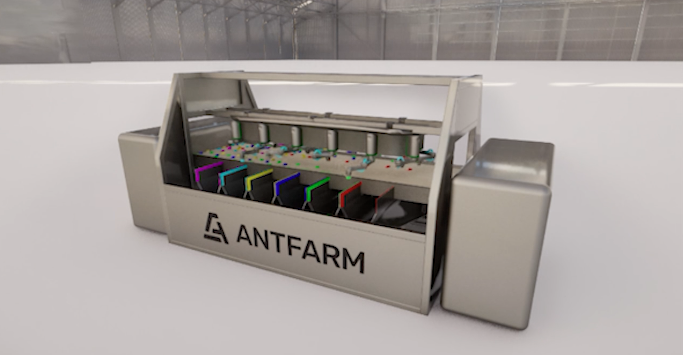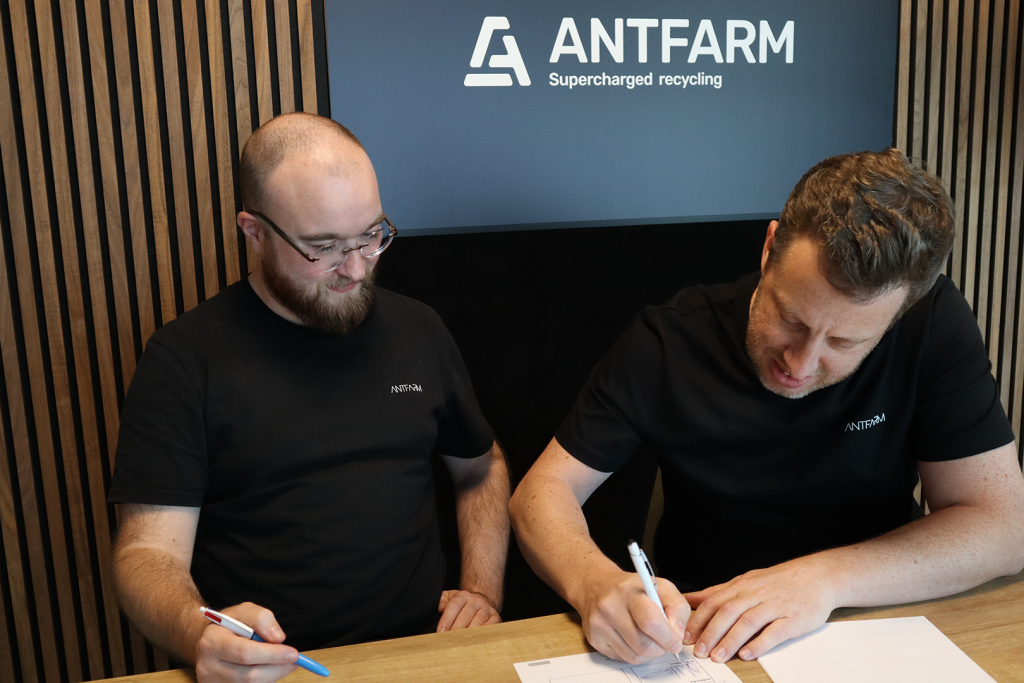
FundsUp spoke with Sébastien Willems from Antfarm, a startup aiming to revolutionize waste processing with autonomous, small robots. Antfarm is currently seeking an additional 700,000 euros to further develop their technology, with plans to be production-ready and secure their first contracts by the end of next year.
A Dutch version of this article can be read on the website of our partner: Emerce.
Can you take us back to the beginning of this journey? How did you get here, and what is your background?
“Certainly, it’s quite a story. I have a background in digital communication and spent a long time working on a SaaS startup called PressPage. This company provides a communications platform, a bit like what Exact does for accounting. After more than ten years, I started feeling the urge to try something different, especially when COVID brought everything to a halt. I wanted to make a bigger impact and was looking for a way to use my skills and experience to contribute to something meaningful.
I began exploring AI and saw opportunities for applications in recycling. When I came across videos of robots sorting waste, I was immediately fascinated. That image stuck with me, and I realized there was room for improvement here. The idea was to develop a smarter solution for waste sorting, with more action and less movement per robot. This is how the concept of Antfarm was born.”
That sounds like an inspiring start. How did the ‘ant’ inspiration come into play?
“That’s a fun story. We actually want to replace the current large sorting machines with a ‘swarm’ of smaller robots that work much more efficiently together. The idea of many small workers, like ants in a colony working together to accomplish a large task, really appealed to us. The name Antfarm fits perfectly because we’re essentially creating a ‘colony’ of robots that can autonomously and flexibly sort waste.”

Very cool, and quite a challenge. What kind of team do you have to take this on?
“We’re currently working with a small team of four people. I initially brought my co-founder on board as a freelancer to help with research. After a while, we decided to fully commit to it together. Since then, we’ve been gradually expanding our team, and now we’re working hard to turn our idea into reality.”
How is the development and commercialization of your technology progressing?
“From the beginning, we’ve been in close contact with the market, working alongside various partners to validate that we’re moving in the right direction. Our roadmap includes a first scalable test in Q3 2025, and we’re already in discussions with potential clients and companies like Renewi, PreZero, and Attero. They’re enthusiastic and are actively helping us reach that point. We’re even seeing interest from countries like Singapore and Mexico, where we might conduct pilots at a later stage. The idea is to improve waste processing not only here in the West, but to also make a positive impact in developing countries.”
How do you make it affordable for countries with fewer resources?
“That’s an important point. We’ve managed to reduce the ‘cost-per-pick’ by as much as 75 percent, which makes our solution affordable for markets where high-tech applications are typically less feasible. Our machines can handle various waste streams, making them flexible and economically viable.”
Interesting. And regarding scale, are you looking at one format or multiple?
“We’re focusing on scalable, smaller units that can be easily connected, rather than a single large machine. We’re building an ecosystem that can grow flexibly with the user’s needs, whether that’s fifty robots or a thousand. This way, we aim to make waste processing more affordable and accessible worldwide.”

You’re currently in the middle of a funding round, is that correct?
“That’s right. We’re currently conducting a pre-seed round of one million euros, and we’re seeking an additional 600,000 euros to further develop into a production model, so we’ll be ready to scale and sign our first contracts by the end of next year. Additionally, we plan to improve our profile in the coming period to make sure we’re on the radar of American investors for the next round. Investment interest and the pace of discussions there are slightly different, especially for deep-tech hardware like ours.”
Finally, what do you envision for Antfarm’s future?
“Our goal is to ultimately contribute globally to more efficient waste processing, providing a ‘leapfrog’ solution that allows countries to jump straight to better technology, much like some countries have done with mobile phones and satellite internet. That’s why we’re developing a solution that’s accessible for everyone, allowing us to make the biggest possible impact.”
More information for investors about Antfarm can be found here.